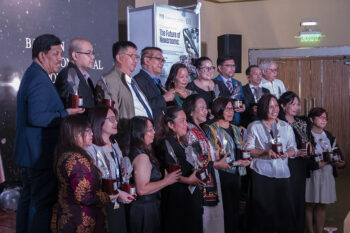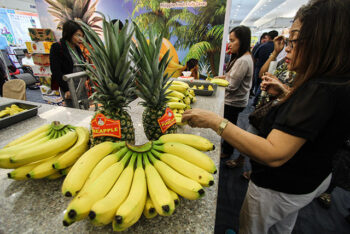GENERAL SANTOS CITY (MindaNews/21 May) — The limited opening of the Pacific Ocean to Philippine fishing vessels is expected to yield 90,000 metric tons of tuna, a Bureau of Fisheries and Aquatic Resources (BFAR) official said on Monday.
But to date, no Philippine fishing companies have deployed their vessels in pockets 1 and 2 of the Pacific Ocean pending the publication of the fisheries administrative order (FAO) governing the matter, said Ambutong K. Pautong, BFAR Region 12 acting director.
“Several companies have already approached our office to seek international fishing permits but we did not process them because we are still awaiting the FAO,” he told MindaNews.
Pautong said they expect the FAO to be finalized within the month.
Last week, BFAR and tuna industry players held a consultation here to discuss the procedure on how Philippine fishing companies should benefit from the limited fishing access.
Secretary Luwalhati R. Antonino, chairperson of the Mindanao Development Authority, said earlier that the WCPFC approved the lifting of the purse seine fishing ban in pockets 1 and 2 of the Pacific Ocean until February 2013.
With the ban’s lifting, 36 Philippine fishing vessels have been given limited access to the tuna fishing ground.
But the probability of Philippine vessel deployment may come after September since the WCPFC is due to close for three months– starting July—the high seas of the Pacific Ocean as part of the yearly conservation measure, Pautong said.
Pautong noted that once the Philippine fishing vessels start catching there, it would enhance the production of tuna canneries in this city, touted as the “Tuna Capital of the Philippines.”
Six of the seven tuna canneries in the country are based here, with the BFAR official saying the local canneries have been experiencing production difficulties due to lower catches, supposedly due to the two-year fishing ban in the Pacific Ocean.
Antonino, who headed the country’s delegation during the WCPFC meeting in Guam last month, also said that the lifting of the fishing ban can greatly benefit the country’s fishing industry especially in Mindanao.
She added that while the country is granted with access, “efforts must also be exerted to prevent abuse”.
Pautong said that part of the possible guidelines, in consultation with the private sector-led Tuna Council of the Philippines, is assigning a specific catching ground to fishing companies included in the 36-vessel allocation.
Tuna fishing companies have agreed to impose penalties of as much as P1 million on a violator, he said.
It may be recalled that WCPFC banned commercial fishing in pockets 1 and 2 of the high seas with the issuance of Conservation and Management Measure (CMM) in 2008 to mitigate overfishing of big-eye and yellow-fin tuna and to limit the growth of fishing capacity in the Western and Central Pacific Ocean. The ban took effect in 2010.
The Philippines is among the 25 member countries of WCPFC, which regulates catching of migratory fish stocks such as big-eye and yellow-fin tuna in the Pacific.
Although the lifting of the ban is a huge success, the BFAR stressed that Filipino fishing vessels must adhere to the fishing standards being imposed by the international commission.
“We must live up to the expectations of WCPFC. We [Philippines] must satisfactorily comply with the provisions of the CMM if we want to continue fishing in pockets 1 and 2 beyond 2013,” said Asis G. Perez, BFAR national director.
Tuna remains one of the top exports of Mindanao with a combined (fresh and frozen) freight-on-board value amounting to US$311 million in 2010. In the same year, the total tuna industry is valued at P23 billion.
The tuna industry employs at least 100,000 people ranging from fishing to canning, processing and other auxiliary services.
The United States, European Union and Japan remain the top export destinations of tuna products from the country. (Bong Sarmiento/MindaNews)







